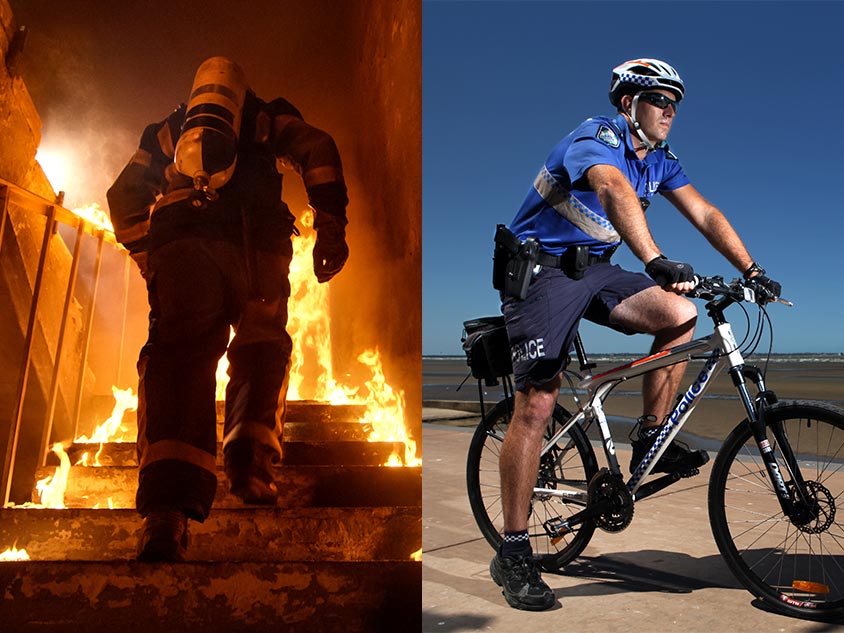Firefighters or police: who needs to be the fittest?

Relentless and demanding work
Can you think of a career that’s requires more physical activity and responsibility than a police officer or fire fighter?
The stress – both physical and emotional.
The relentless demands. When it comes to emergency service workers, there are no other jobs quite like them.
It comes as no surprise that to even be considered for these jobs, you have to pass rigorous fitness tests that leave most office-dwellers flailing.
Remember the beep test? Well, fire fighters, paramedics, and lifeguards, you own it.
But, what job requires the most stamina?
That’s like the old saying: What came first? The chicken or the egg?
One measure, the metabolic equivalent of task or MET test, gives the nod to fire fighters.
One MET is defined as the amount of oxygen consumed while sitting, and it seems that fire fighters in action consume quite a bit.
US researchers have found that general fire fighting duties equals 12 METs, while climbing a ladder in full gear rates 11 and hauling hoses on the ground gets an eight.
Police, on the other hand, score two for driving a squad car, 1.3 if you’re a passenger, and four for making an arrest.
Of course, the MET measure is only looking at one area of exertion and doesn't provide a complete picture.
What’s clear is that both jobs are demanding, both physically and emotionally. With both requiring above-average levels of aerobic and cardiovascular fitness.
No matter what part of emergency services you work in, maintaining fitness is important for both the long-term mental and physical health.
We don’t need to tell you about the almost endless benefits of exercising regularly.
For a start, it helps keep your weight down so that you’re more able to cope with the demands of the job.
Exercise also helps burns off the chemical effects of job stress to help you relax and ease tension. Plus, those endorphins!
Those sweet endorphins…